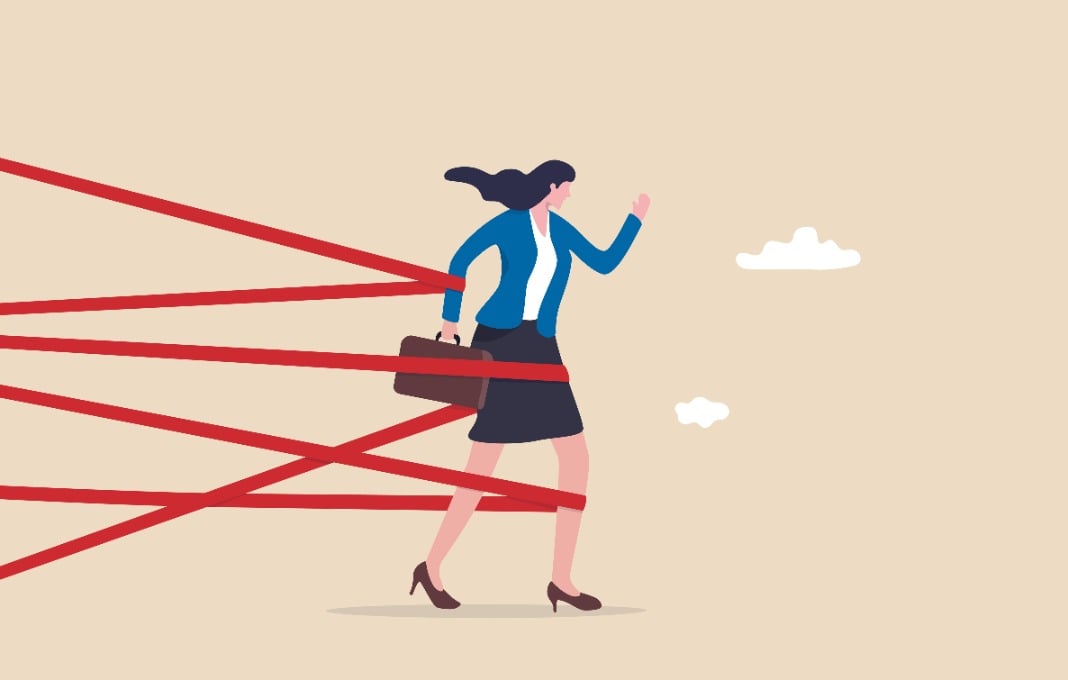I never thought I was hard on women.
I’ve built my career advocating for them. I’ve sat in rooms where I was the only woman and know how lonely and scrutinized that seat can be. I’ve seen what it takes for a woman to rise, and how quickly she can fall. I never wanted to be anything less than a champion.
Recently, my daughter said something that took me off guard: “You’re really hard on women, Mom.” Her voice lingered on really.
She pointed out a pattern. The way I talk about women in the public eye. The way I’m quicker to call them out than their male counterparts. Worse, I believe him, and blame her.
The thing is, I knew my daughter was right.
I hold women to higher standards across the board. I expect more. I forgive less. I judge faster. And I’m not the exception.
How Bias Shows Up
A Harvard Business Review study found that women are 1.4 times more likely than men to receive critical, subjective feedback with comments focused on demeanor and style rather than measurable outcomes. Another study found that men receive significantly higher “potential” ratings than women—about 14 percent higher—despite having similar or lower performance scores.
Men aren’t the only ones upholding these dynamics. Studies have documented the “Queen Bee” effect—when women at all levels distance themselves from or undermine other women to maintain status or get ahead.
I’ve spent over two decades in communications and change management, helping executive teams navigate complex transitions. Again and again, I’ve seen women face immediate scrutiny, not just for their decisions, but for their tone, appearance and likability. Some of the sharpest criticism came from other women.
This isn’t just bias. It’s conditioning.
Conditioned to Critique
Many of us were taught, subtly or overtly, that there’s only room for one woman at the top. We internalized the idea that we must compete with, rather than support, each other.
For the past seven years, I’ve worked with incarcerated women. Their stories echo something I’ve seen in business: When women break the rules, they’re punished more harshly (a pattern also seen in the workplace). One colleague told me the judge at her sentencing said: “You should’ve known better. You’re a mother.” That reaction wasn’t an outlier; it’s part of a broader trend.
A 2020 U.S. Commission on Civil Rights report found that women in prison often receive stricter punishments than men for similar infractions, especially when their behavior defies traditional expectations of femininity.
We also see this dynamic in the rise of “Failure to Protect” laws. Intended to hold caregivers accountable in cases of child abuse, these laws are used disproportionately against mothers, even when they are not the abusers. In many cases, women receive harsher sentences than the men who committed the abuse because they failed to meet an unforgiving standard of maternal responsibility.
This kind of judgment isn’t limited to the justice system. It’s cultural. And it starts early.
I grew up in a world where, if a man cheated, we blamed the other woman. If a child got hurt, we asked, “Where was the mother?” If a woman came forward with abuse years later, we questioned her motives. But if a man did the same—as many did in the Catholic Church scandal—we believed him.
A Shift in Mindset
I never consciously believed women should be held to a higher standard, but somewhere along the way, I absorbed that mindset anyway. Now, I see it for what it is: a tool not to empower women but to police them.
Since that conversation with my daughter, the instinct hasn’t disappeared. But there’s now a pause. A moment where I ask: Am I seeing her clearly? Or am I holding her to a standard I’d never apply to a man?
I’m not saying we should lower the bar for women. I’m saying we’ve quietly raised it so high that it’s become another obstacle.
What Needs to Change
We talk a lot about the external barriers women face—pay gaps, underrepresentation, outdated policies. But rarely do we talk about the internal ones: the judgment we pass without noticing, the expectations we’ve inherited and never questioned and the quiet ways we hold each other back.
If we want equity, we have to start with ourselves: how we judge, who we forgive and the grace we extend.
Because someday, it won’t be some woman “out there” facing criticism.
It will be you. Or a woman you love.
And what you’ll want in that moment isn’t critique—it’s compassion.







